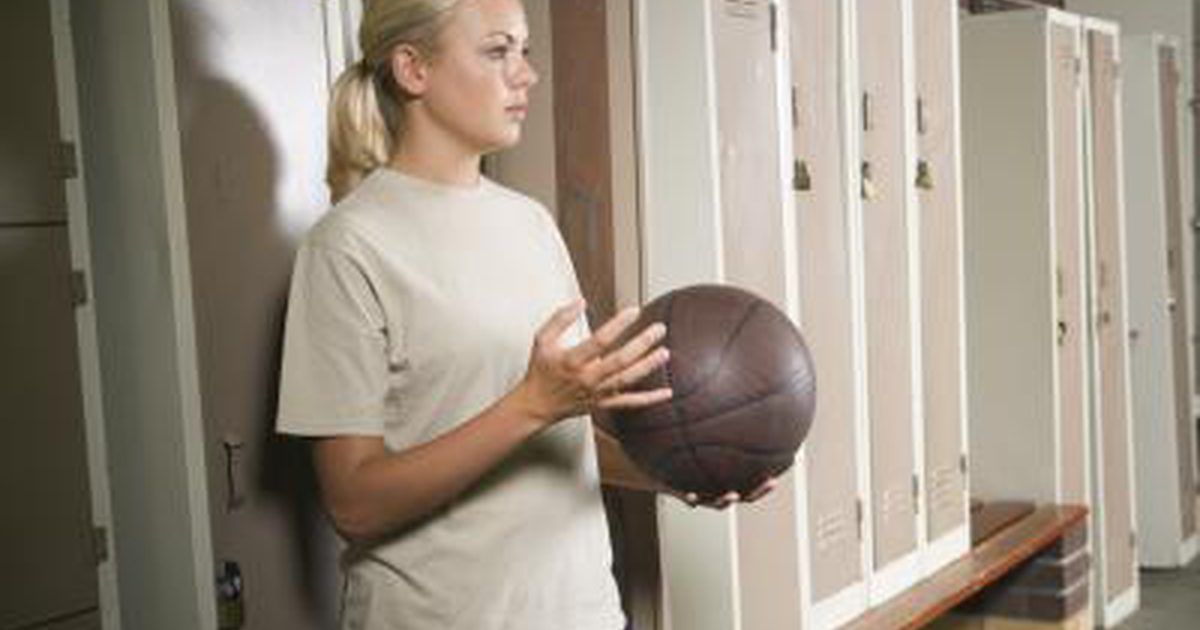Home »
Misc »
How to impress your coach in basketball tryouts
How to impress your coach in basketball tryouts
Basketball on the Edge - Top 8 Ways to Impress Your Basketball Coach
How can any basketball player catch the attention of their coach at tryouts or during practice? What are the things good coaches are looking for when they watch a particular player? This list is a great place to start when you want to make a team, earn more minutes, and gain your coach’s respect.
1. When your coach is talking, listen and pay attention.This may seem simple, but for young players with shorter attention spans it can be difficult.
Try to make eye contact with your coach. When they look at you, your eyes should be looking back at them.
Don’t dribble a basketball while your coach is talking!
If your coach is speaking directly to you, nod or respond verbally when your coach is done talking. That way they’ll know that you have understood what they said.
Don’t fool around in line or on the sideline when you are not participating in a drill. This is the quickest way to turn off your coach.![]() If you have a friend on the team that is always playing around, don’t stand by them! Guilt by association is powerful.
If you have a friend on the team that is always playing around, don’t stand by them! Guilt by association is powerful.
Coaches HATE when players don’t listen! Coaches LOVE when players listen.
2. Hustle.Your coach can teach you how to shoot, pivot, execute a crossover dribble, etc. but they can’t teach you how to hustle! That comes from inside of you.
Hustle during drills, hustle to the coach when they gather the team together, hustle during games and scrimmages, hustling is NEVER wrong!
Hustling is not a skill that can be taught. It is a mindset that you must bring to everything you do on the basketball court.
3. Be the best at something on your team.A coach will always have room on the team for someone who is the best at a particular skill.
The Best Shooter.
The Best Rebounder.
The Best Passer.
The Best Defender.
The Best Ballhandler.
Become the best on your team at a particular skill and your coach will notice!
4. Communicate.
Communicate.Good coaches love it when players talk out on the court. Talk on defense, talk on offense.
Communication helps make your teammates better. It makes it easier for the TEAM to function together as a unit.
Great players are talking to their teammates constantly. Call out screens, direct teammates where to be, point out cutters, encourage your teammates with positive talk. “Hey, nice pass!” is an invaluable comment that goes a long way towards building up team spirit.
5. Don’t let mistakes affect your effort.Everyone makes mistakes. That is how learning occurs. Don’t compound your mistake by pouting or not continuing to give your best effort.
Never let a mistake become two mistakes through lack of effort or concentration.
Learn from your mistakes and try to correct them.
6. Be a Leader.Demonstrate good sportsmanship at all times.
Be enthusiastic at practice. No coach wants to beg and plead with you every day to get you to play hard.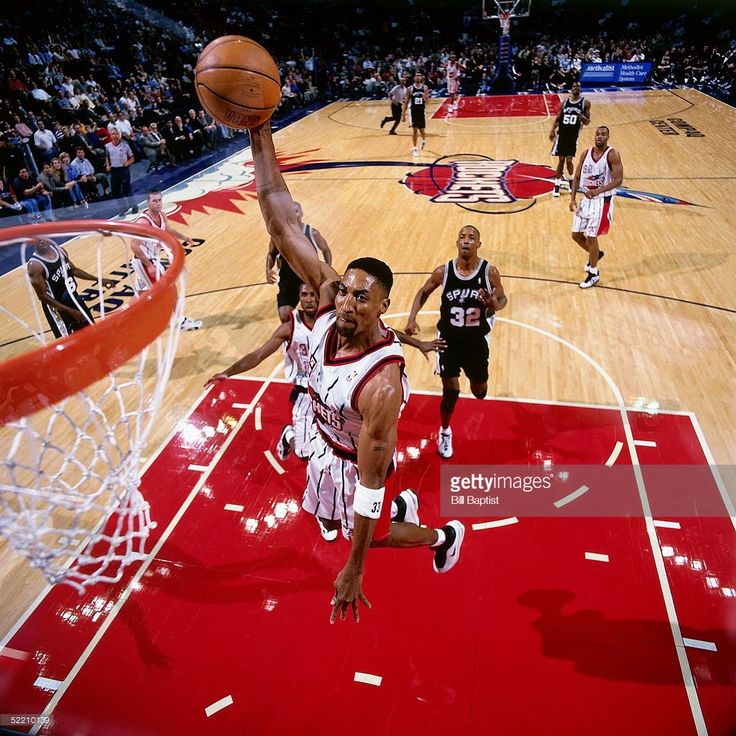
Be a good teammate that other players want to play with, share the ball, be positive, and play with passion.
7. Show up early.If you are the first player at practice every day and the last to leave your coach will notice the extra work you are putting in.
Be ready to go the moment the tryout or practice starts.
8. Be Confident.Skill building is confidence building.
The more you train and develop your basketball skills the more confident you will be.
Great players are confident, not cocky. Great players have the attitude that they can compete with and beat anyone. Great players know they put in the work. All great players have a little swagger that says, “I’ve worked harder than you and I believe that I can beat you!”
Coaches love confident players who will take on the challenge of guarding the other team’s best player or taking the last second shot.
Put in the work and be confident!
Coaches love to find players who fit this description.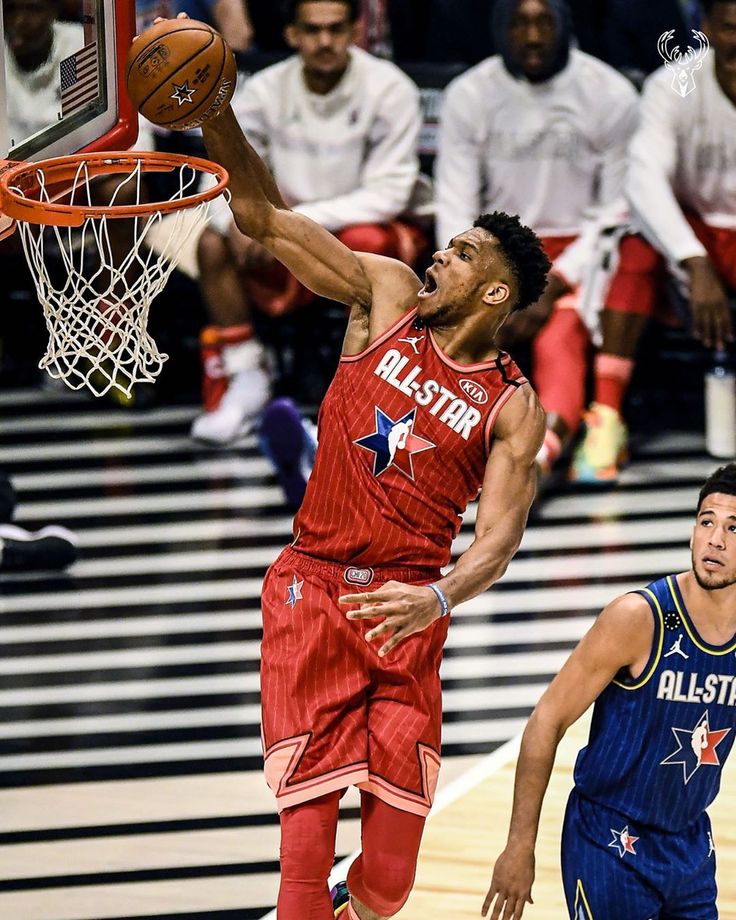 6 out of the 8 items on this list have nothing to do with basketball. Developing those skills is a mindset. Combine that mindset with relentless practice and you’ll be on your way to impressing your coach and reaching your basketball goals!
6 out of the 8 items on this list have nothing to do with basketball. Developing those skills is a mindset. Combine that mindset with relentless practice and you’ll be on your way to impressing your coach and reaching your basketball goals!
9 Ways to Impress Your Coach & Make the Team – HoopGrind
June 14, 2017 June 14, 2017
I’m assuming you already have at least a little bit of talent and that you work hard. However, whether you are a role player looking to get more minutes, an established “star” looking to get to the next level, or just looking to impress the coach during tryouts, here are 9 things you can do to help accomplish your goal.
- Play with Passion
Most basketball coaches love the game (that’s why they coach!) and they want to be around players who love it too. Enthusiasm, attitude, and competitiveness are all contagious. Encourage everyone on the court – even those who are going after your spot. Do everything with the highest level of energy possible. Clap, whistle, and lead the team in high fives! Project your inner Magic Johnson and be the teammate that everyone wants to have around.
Clap, whistle, and lead the team in high fives! Project your inner Magic Johnson and be the teammate that everyone wants to have around.
- Play Smart
It’s much easier to teach a player how to improve their ball handling and defense than it is to improve their basketball IQ. Focus on how all the drills and offenses are supposed to be executed and develop the reputation of being a “quick learner.” Since practice time is limited, all coaches want players who pick things up quickly because it saves time and makes things easier for everybody.
- Pay Attention
When the coach is talking look him or her right in the eye and listen like your career depends on it! Ask appropriate questions so he will know you are listening and truly want to understand what he is talking about and explaining. Don’t be afraid to speak up if he asks a question and you know the answer.
- Be the Beast of the Gym
When it comes to playing be tough, hardnosed, scrappy, and physical.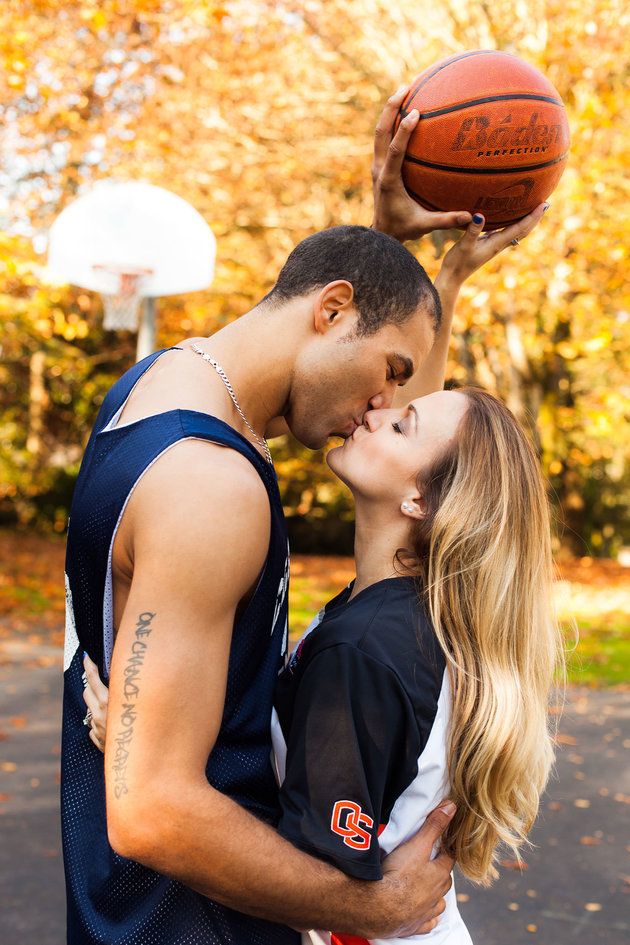 Box out hard, set hard screens, fight over screens hard, defend hard, run hard and go after every loose ball and rebound like it’s a sack of hundred dollar bills. So few players approach the game like this anymore so if you play like a beast you will surely stand out and be noticed.
Box out hard, set hard screens, fight over screens hard, defend hard, run hard and go after every loose ball and rebound like it’s a sack of hundred dollar bills. So few players approach the game like this anymore so if you play like a beast you will surely stand out and be noticed.
- Be the First in Line
When drills are being demonstrated and run most kids are going to try and slip to the back of the line hoping they won’t be noticed. Not you because you want to be noticed! You race to the front of the line! That way coaches will notice you both as a player and as a leader and you’ll get in more repetitions which means more chances to look good.
- Be in Better Shape than Everyone Else
It’s plain and simple – the better shape you’re in the better you’re going to look – especially at the end of practice or on the second or third day of tryouts when everyone else is exhausted. By coming to tryouts in shape, the coaches will know you are serious about making the team and didn’t just decide to try out at the last minute.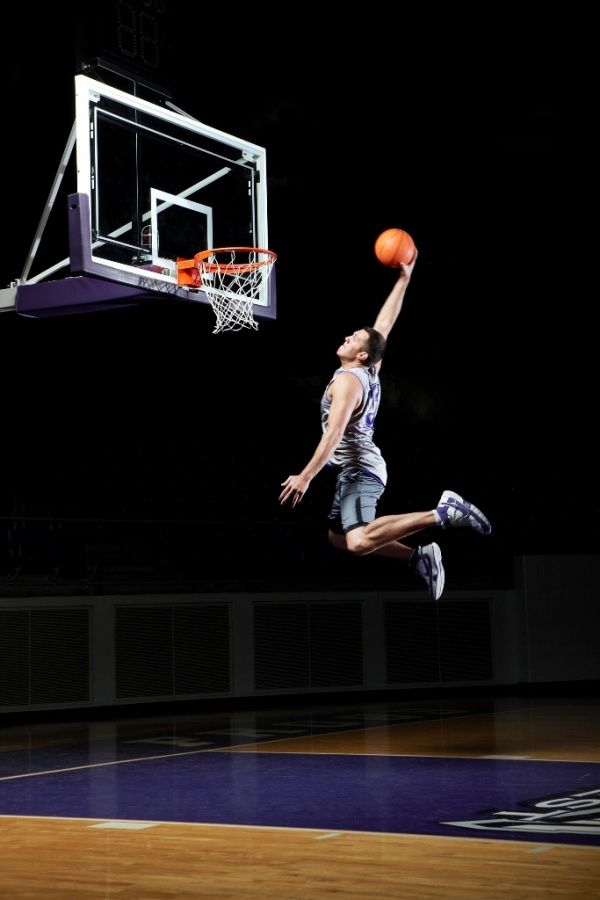
- Talk on Defense
Coaches go to bed every night dreaming of having players talk on defense. Why? Because so few actually do talk! “I got #14,” “Help this side,” “Bring him my way,” “I’ve got the lob,” and “make him go left,” are just a few examples of things you can say that will help you get noticed. Not only that but it will also improve your defense and give you an opportunity to show off your basketball IQ – all great things when you are trying to make the team.
- Be Early & Stay Late
Not on time – early. In fact try to be the very first one there. Then when practice is over don’t be the first one to rush out of the gym. Grab a ball and head to a basket and get some more shots up while everyone else heads out the door. Chances are the coach will come over and spend a few extra minutes working with you. Even if he just yells “Ok time to go!” at least he will know you are trying to get in as much work as possible and that you love being in the gym.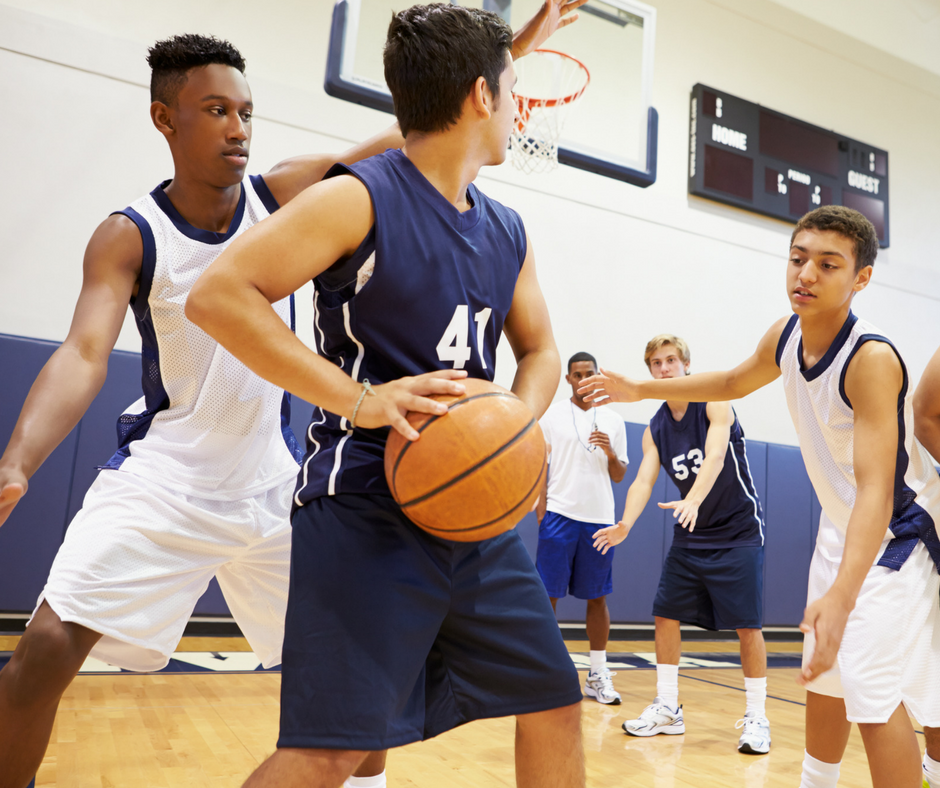
- Talk to the Coach
Be a person not just a number. Ask him how you did and what should you have done better. After the tryout is over make sure you thank him for the opportunity and that you’re looking forward to working with him. Coaches like drawing up plays and running practices but coaching is still relationship driven. All coaches want players they can talk to and relate to yet many young people don’t take advantage of that. Let’s face it, if a coach knows you and likes you then chances are you are going to get a closer look than a complete stranger will get.
The Most Common Mistakes in Kids Team Practice
By Coach MAC
Have you ever wondered what mistakes you make when you run basketball practice? In creating this blog, I have been blessed to interact with some of the smartest basketball minds in the US. What better way to help you and collect answers to our simple question from all these experts? I asked leading basketball experts to answer: "What are the most common mistakes coaches make when conducting training in children's basketball?" There are two ways you can digest their responses.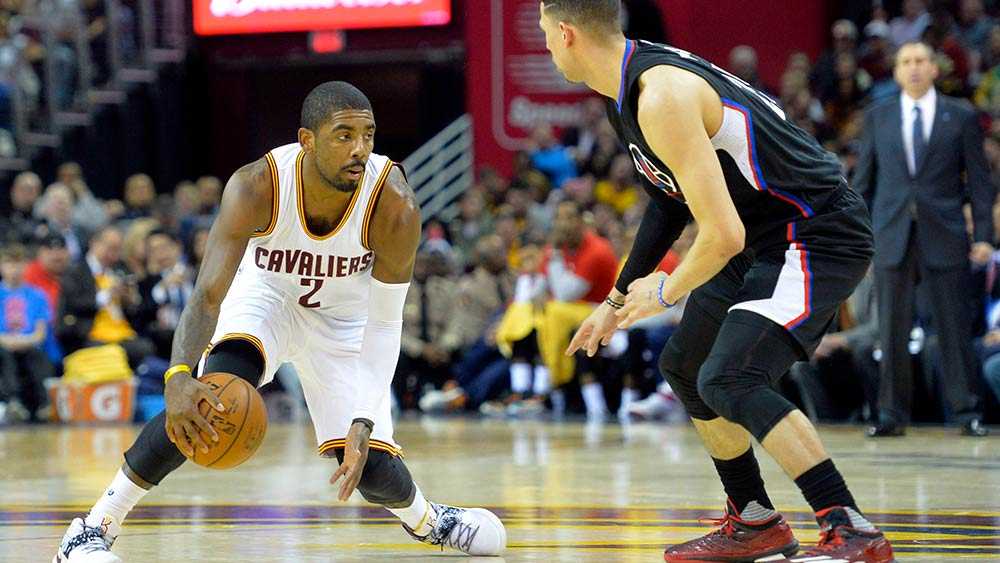 ..
..
1. I created this list so you can skip some by going down to your favorite expert.
2. Grab a coffee, make sure you have 20-30 minutes to spare, and read the entire list (recommended). Darrell Johnson - Cross Over Hoops Some children's coaches are too concerned with the results of their team's games, how many wins they can get. Don't get me wrong, winning is important, but developing fundamental individual technique skills is much more important at a child level. No one will remember your elementary school team record, but what they will remember is winning their state varsity tournaments or maybe the U.S. championships... Most kids' training should be spent on developing skills, not teaching offensive and defensive strategies. What good is a game worth when your players can't dribble, pass, or shoot the basket? The basics of individual fundamental offensive and defensive playing techniques must be taught correctly and then trained using repetition. If a player does something wrong, then the mistake must be corrected before a bad habit is formed.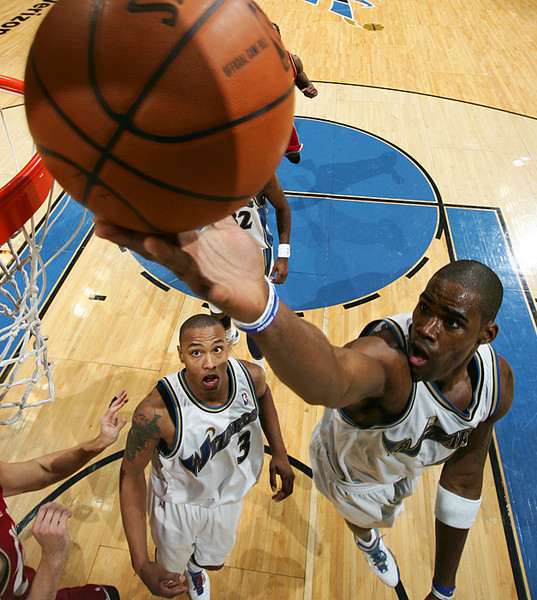 Too many players enter middle and high school with terrible habits that are extremely hard to break because they weren't corrected in elementary school during the training period. Establishing a good foundation of fundamental playing technique is the primary responsibility of children's coaches for the future careers of their pupils.
Too many players enter middle and high school with terrible habits that are extremely hard to break because they weren't corrected in elementary school during the training period. Establishing a good foundation of fundamental playing technique is the primary responsibility of children's coaches for the future careers of their pupils.
Alan Stein – Stronger Team
The most common mistakes youth coaches make are:
Training is not age appropriate (physically, mentally or emotionally). Training is not targeted. Workouts are boring.
Brian McCormick - 180 Shooter
Exercise must have a goal, and the coach must also know the goal for each part of the workout, even if the goal is to take a break to recover before intense exercise. However, the biggest mistake is talking too much and giving answers to all the players to their questions. There is a misconception that players learn a lot from the coach's conversations or briefings; but players learn more from doing.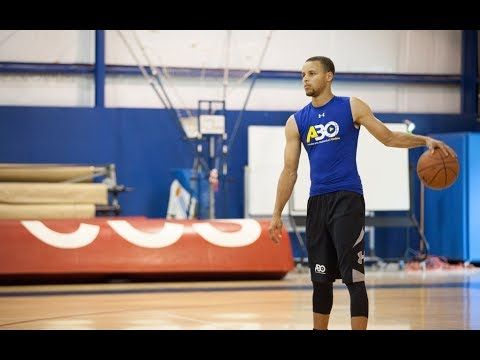 When the coach speaks, the players do nothing. Instructions should be short and concise. Players should be able to decide for themselves what to do or what they should have done. When coaches constantly give advice, players stop thinking and rely only on the coach.
When the coach speaks, the players do nothing. Instructions should be short and concise. Players should be able to decide for themselves what to do or what they should have done. When coaches constantly give advice, players stop thinking and rely only on the coach.
Randy Brown – Coach RB
1. Conducting a workout without a well thought out plan prior to practice. Note: The plan must be developed jointly with the assistant trainer so that what is taught is the result of a collaborative effort. Every workout needs a goal.
2. Not making maximum use of time, court space and high involvement for all players. those. - Gathering in line for throws is one of the most mediocre wastes of time.
3. There is no method for evaluating every workout. Without a methodology to accurately assess the progress of players and teams, how to measure the improvement of this training session, the necessary adjustments for the next training session, and use the analysis of how time was used and whether your goal in training was achieved - there can be no good results.
4. #1 frustrating - Trying to do too many things and waste time attacking and defending instead of dividing them into parts of each and teaching / coaching / making players responsible for each skill. What for? - If you do not make the players responsible for their actions in training, then this is the fault of the coach and not the players. How can a coach be frustrated, angry to make substitutions when he didn't teach / coach / and not every player / and the team as a whole listened to him, practiced skills in exercises, and then put them into practice. Until this is done, the game is a joke, and the coach is to blame for this.
Bryan Burrell - New Age Elit Sports
In my opinion, the most common mistake in training children's teams is the amount of time coaches spend on special game situations.
I believe that time in kids basketball practice today is only spent on making their current team better, not on things that will benefit the players throughout their future careers.
Chris Hyppa – Chris Hyppa BasketBall
Coaches are only focused on winning!
• Everyone wants to win, but the "development of individual fundamental skills" at the youth level takes a back seat to win. I believe development should be focus #1. Victories will follow. Developing through learning and improving skills, raises basketball IQ and strengthens relationships with players!
• Have a plan!
• I see a lot of kids training without a "goal". Kids coaches will have more productive workouts and see players progress if they document progress/failures and have a plan for every workout! "Confidence comes with preparation" - you have the power to inspire confidence, be prepared!
Courtney Campbell – Train to Ball
• I think it's a common mistake coaches make to spend 20% focused time instead of 80%. This comes from the Pareto principle (or the 80-20 rule) which states that 80% of the results come from 20% of your actions.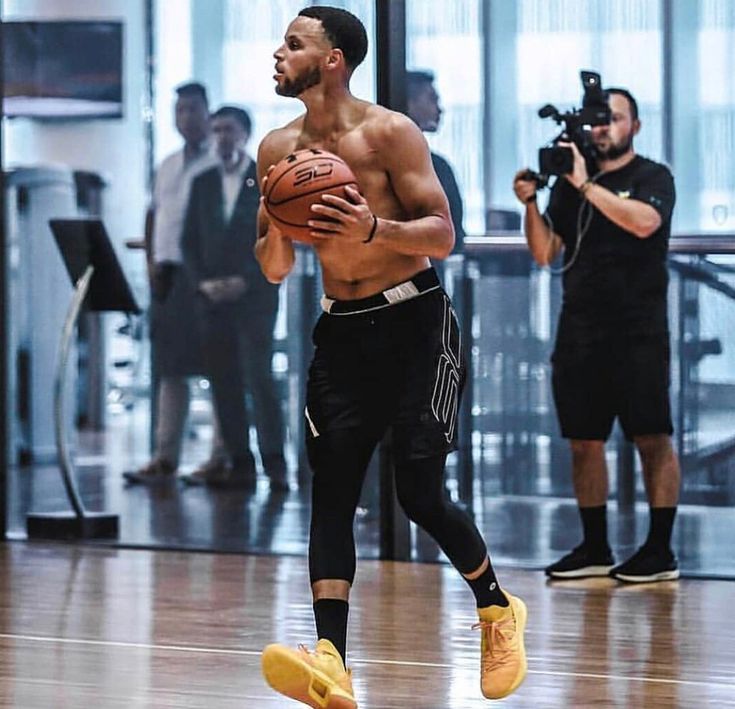 I think a lot of young coaches' drills are designed to teach certain skills that are rarely used in games. Drills can be chosen randomly without thinking about what are the dominant skills needed to create an effective and productive player. I try to tailor my agility drills, footwork, individual ball technique, etc. to learn and improve the basics of what will be 80% applied in the game.
I think a lot of young coaches' drills are designed to teach certain skills that are rarely used in games. Drills can be chosen randomly without thinking about what are the dominant skills needed to create an effective and productive player. I try to tailor my agility drills, footwork, individual ball technique, etc. to learn and improve the basics of what will be 80% applied in the game.
• In addition, there is an increase in the use of rubber bands and other training tools and equipment that will help increase the first stride, speed and agility of the players. However, most coaches are not aware of the mechanisms of injury in our game. If the trainer does not have knowledge of the general mechanism of injury, you are likely to increase the number of injuries with this equipment (knee, back and other injuries). Use this equipment with the limitation to your proper self-study.
Dave Hopla - DaveHopla.com
I find that most coaches are more interested in managing the game or letting them play rather than teaching them how to play. It never seems to be enough training to pass, catch, or throw. Too much dribbling.
It never seems to be enough training to pass, catch, or throw. Too much dribbling.
David Nurse –Perfect Shots Shooting
I strongly believe that one of the biggest mistakes children make is that they want to start learning offensive patterns by making players become "robots". The more coaches emphasize drills that put young players in situations where they have to make quick decisions and think for themselves, the more and sooner they will develop their IQ of their game. It's like when you want to learn a new language, it's easiest to do it while you're young, before your brain gets developed in that area. The same with IQ "feel basketball". It is very important to develop this feeling as early as possible and youth coaches should do their job much better. I have seen all this all over the world, and this same topic is driving me crazy! I compare these bad habits of being a "robot" to sleeping in comfortable beds - it's easy to get into bed, but very hard to get out. Players must learn to think for themselves at a young age and this habit will pay dividends in their development.
Players must learn to think for themselves at a young age and this habit will pay dividends in their development.
Drew Hanlen - Pure Sweat Basketball
• Too much flame and not enough fuel
• Too many old routines (eight 3's, throws with no resistance on passes) and not enough individual skill development
• Too much play and not enough development exercises
• Lack of correction (too many mistakes allowed).
• Winning at lower levels is celebrated instead of focusing on learning skills for long-term success
Duane Jourdeans - Rule of 5
1: No training plan
2: No focus on building relationships with players
3: No development and improvement of playing skills 4: Emphasis on game management
not how to play
5: Shouting while learning
6: Lack of preparation of leader players
7: Tall children learn to play only in the center position
8: Lack of mental preparation.
9: Fitness exercises without a basketball goal
Galen Harkness – GalenHarkness.com
Major mistake: Too much emphasis on strategies for how to win the game, which often sacrifices a long-term program of fundamental player and team development.
Other thoughts.
1st: Too much emphasis on game control and game combinations. Coaches have a good set of playing combinations that are trained to complete the throw. But what can players do when schemes don't work? This strategy is designed in such a way that it does not allow or encourage players to make the right game decisions.
2nd: Lost time. A large amount of time is spent when moving from one exercise to another. Drills are rarely designed or implemented in such a way that all players are constantly involved in them. Too many stand still.
3rd: Lack of professional development. Some coaches teach and practice the way they learned to play. The basketball game is constantly evolving, but not all children's coaches evolve with the game.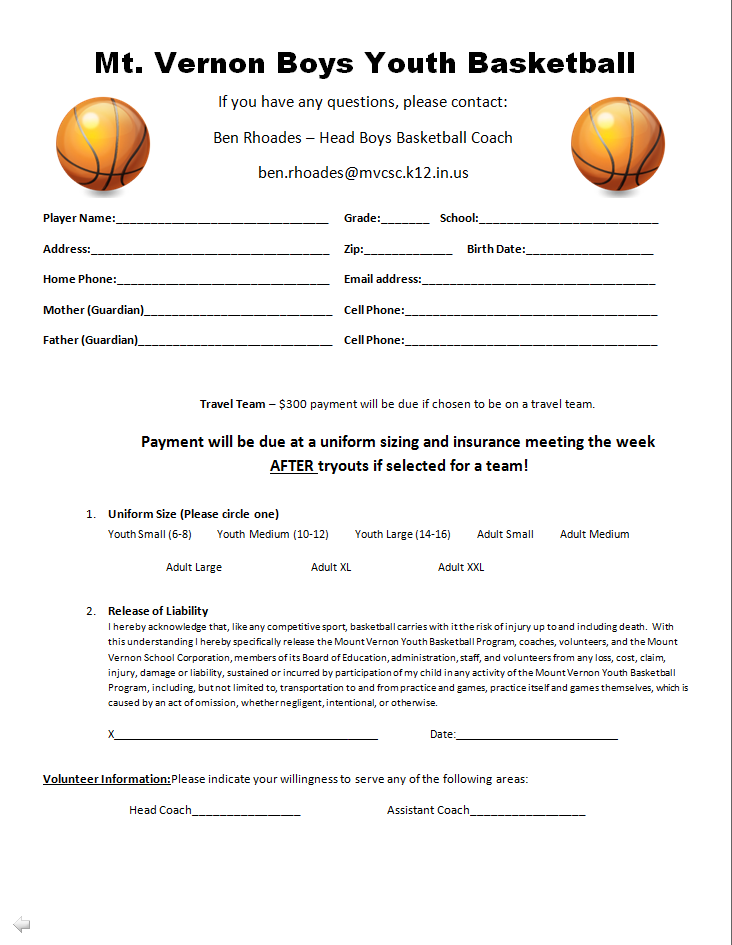
Ganon Baker – Elev8Basketball
Problem - Coaches talk too much during practice where kids lose their attention and sweat. They are too wordy in their instructions. Decision - do instruction/correction 20-50 seconds. Make your remarks and then exit them without disrupting the flow of intense training.
Problem - trainers do not use humor or have no sense of humor. They seem to be tough and awkward in their communication. Decision - A coach with a child's heart but an adult mind. Enjoy the conversation, but don't overstep the bounds. Basketball game for kids, help them have fun!
Problem - they use useless exercises in their training. The drills are boring and not like a game, and do not belong to their offensive and defensive systems! Solution - Examine your ship. Try to find ways to have a professional workout.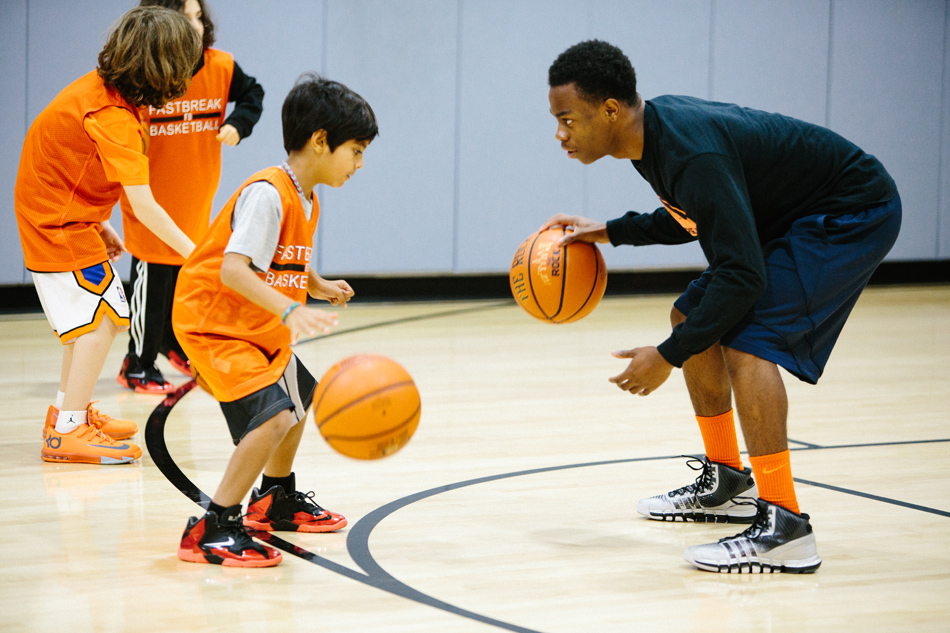 Teach the skill, choose exercises similar to the game, such as 1 on 1, 2 on 2 or 3 on 3.
Teach the skill, choose exercises similar to the game, such as 1 on 1, 2 on 2 or 3 on 3.
Gary Maitland – Coach Maitland
1. Punishment. Children's basketball practice is an early experience of a long-term passion and commitment to the sport we love. The biggest mistake a coach can make is to create an environment where kids are afraid to "do it wrong". It is unfortunately all too common for children's basketball coaches to punish their players for mistakes. The player should not be afraid to make mistakes. Mistakes are an integral part of the learning process and hence it is important for children to know that they will not be constantly penalized. Basketball involves a number of complex ball handling and decision making skills. Skills must be taught, developed and mastered. When the coach punishes a player for a mistake, he/she prevents the player from taking risks; Risks help them learn the game and develop a sense of making quick decisions and actions.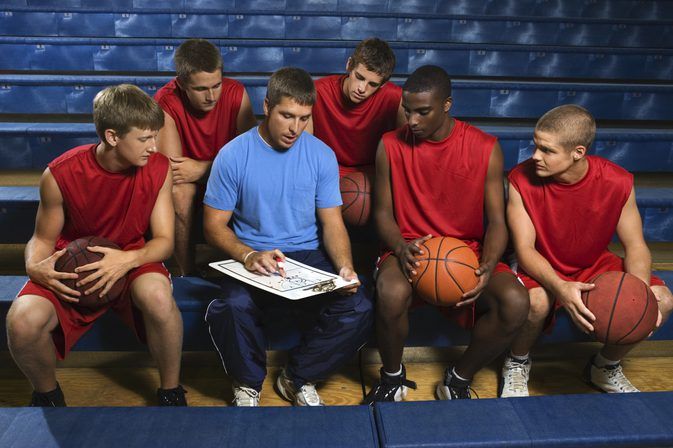 Those early training years should be interesting. Children should have fun when they learn new things. If a coach punishes kids with endless push-ups or sprints, it is unlikely that they will want to continue training with him and have fun. It will only be a matter of time before they stop attending these workouts. It is very important for young players to understand the consequences of their mistakes (i.e. that poor performance has a negative impact on the course of a drill or game). Punishments do not teach children how to do a technique or how to make a better decision next time. This type of coaching behavior is so common that young players judge the quality of coaching/training by how intense the punishments were. "What was the workout like?" "It was hard. We ran a lot and did a lot of push-ups." This answer shows that not much (or anything) was learned during this training session.
Those early training years should be interesting. Children should have fun when they learn new things. If a coach punishes kids with endless push-ups or sprints, it is unlikely that they will want to continue training with him and have fun. It will only be a matter of time before they stop attending these workouts. It is very important for young players to understand the consequences of their mistakes (i.e. that poor performance has a negative impact on the course of a drill or game). Punishments do not teach children how to do a technique or how to make a better decision next time. This type of coaching behavior is so common that young players judge the quality of coaching/training by how intense the punishments were. "What was the workout like?" "It was hard. We ran a lot and did a lot of push-ups." This answer shows that not much (or anything) was learned during this training session.
2. Long lines Children's practice should be structured so that each player has a lot of touches on the ball.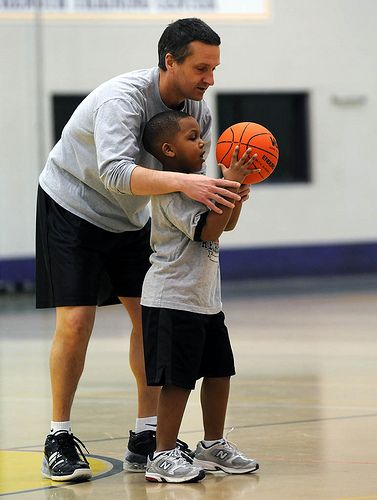 Children's training is developmental training and therefore a sufficient number of repetitions of learning and improving elements of individual technique should be planned. When the coach puts the players in long lines, it reduces the number of times the player has the ball. Their chance to interact with the learning decreases, they become bored and distracted. It is very important for young coaches to organize their training so that all children are active, busy and practicing skills.
Children's training is developmental training and therefore a sufficient number of repetitions of learning and improving elements of individual technique should be planned. When the coach puts the players in long lines, it reduces the number of times the player has the ball. Their chance to interact with the learning decreases, they become bored and distracted. It is very important for young coaches to organize their training so that all children are active, busy and practicing skills.
Greg White - Twitter Profile
The epidemic of bad coaching in youth sports is high at all times. I applaud USA Basketball for creating a coach certification program, but there is a question we need to answer: "Who trains our coaches?" Here are a few things I see wrong with youth coaching. 1. Exercise is more important than Skill. Coaches use exercises for the sake of exercise in elementary school. Ever watched an 8 year old team run a 3 player eight? This has no meaning or purpose.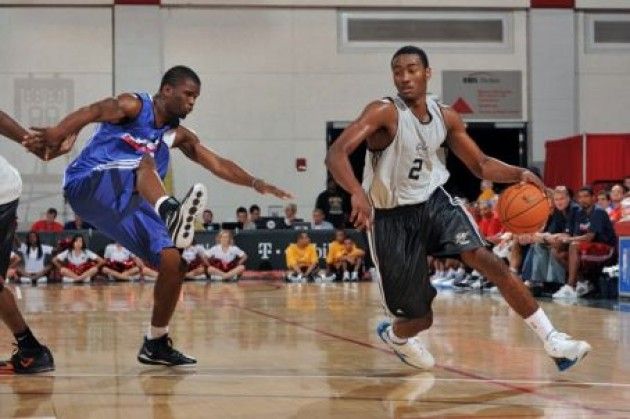 Find a way to practice skills without overly difficult exercises. We learn the alphabet letter by letter. 2. Fundamentals. Young players should not associate practice with yelling. Children's basketball should be fun and upbeat while learning the basics of the game. 3. Play simply without complicated game patterns. Teach players how to play, not how to make combinations. What do you gain by using exercises at the 5th grade level that are not well suited to the 7th grade. 4. Competitions. Too many games. It doesn't take a genius to know that in a team game of 8 year olds, the 2-3 zone wins games. At this age, competition is more for the ego of the parent than for the benefit of the children. Let children be children. I think we shouldn't play 5v5 under 10.
Find a way to practice skills without overly difficult exercises. We learn the alphabet letter by letter. 2. Fundamentals. Young players should not associate practice with yelling. Children's basketball should be fun and upbeat while learning the basics of the game. 3. Play simply without complicated game patterns. Teach players how to play, not how to make combinations. What do you gain by using exercises at the 5th grade level that are not well suited to the 7th grade. 4. Competitions. Too many games. It doesn't take a genius to know that in a team game of 8 year olds, the 2-3 zone wins games. At this age, competition is more for the ego of the parent than for the benefit of the children. Let children be children. I think we shouldn't play 5v5 under 10.
Hal Wilson - Coaching Basketball Wisely
Maybe these exercises were used when you were playing because they suited your skill and development level, but they are not suitable for the level of the team you are coaching now.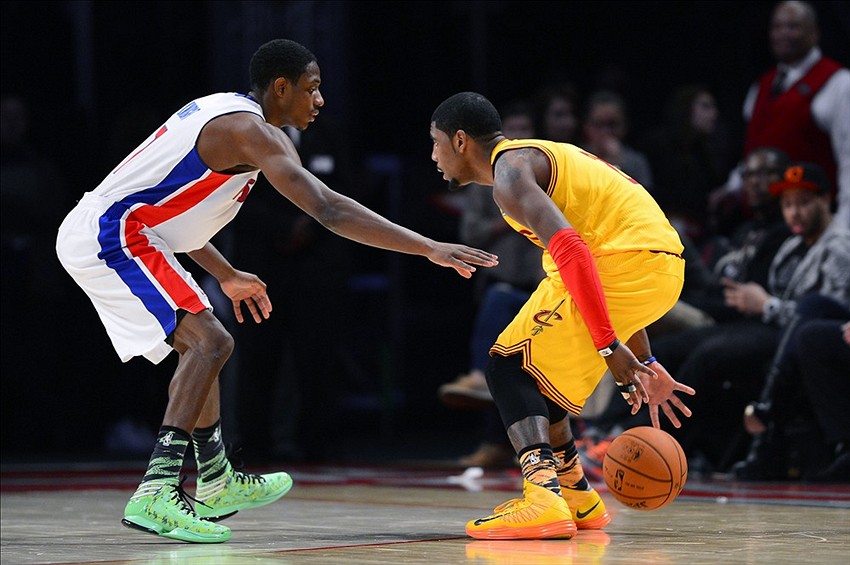
2) The second big mistake is just doing something because it's done by a successful coach X on TV. Great coaches have great players with great needs, again, your players may have other needs. Trying to get your players to use and perform elements of high and complex skills and concepts before they have mastered the basics of fundamental individual technique, a recipe for disaster, for herbs or frustration. Coaches must look beyond their own experience and find cutting edge ideas, but must adapt them to their team's current situation. A drill should be designed with clear goals: a) How this drill can help your team in games, b) Gradual progression (break complex skills and concepts into more accessible levels for your players), c) Applying clear goals and objectives of the game (players need to understand why skills and concepts are important and how they will help them be more successful individually and how they will help their team in games).
3) The third big mistake is to train to make the coach look good and not to teach the team to play better.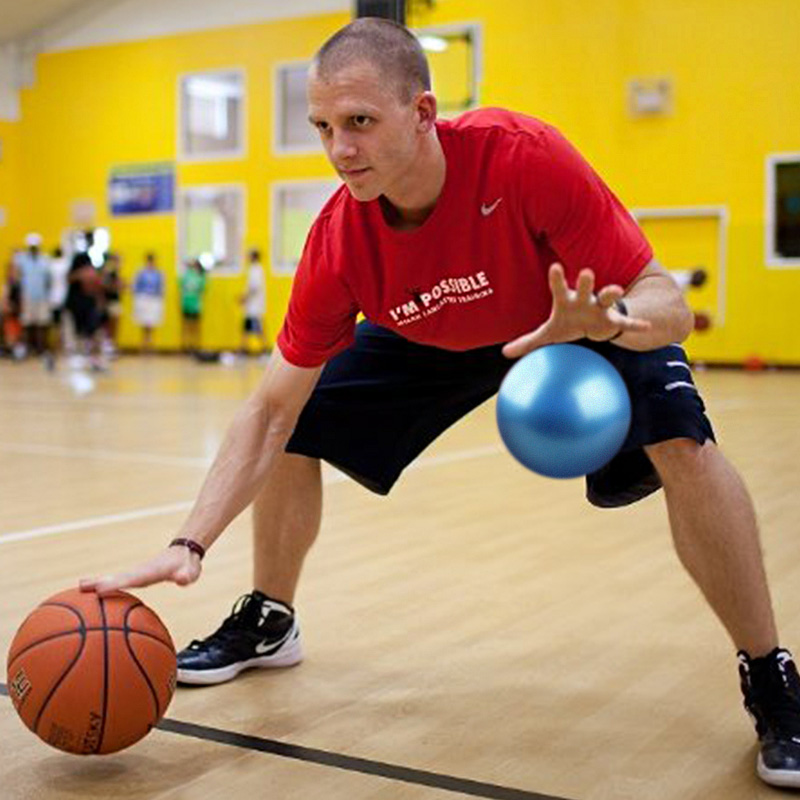 Yes, your difficult drill may look great in practice, but as mentioned in point two, if it doesn't have a clear application in games, then it (the drill) is really more for you than for your players.
Yes, your difficult drill may look great in practice, but as mentioned in point two, if it doesn't have a clear application in games, then it (the drill) is really more for you than for your players.
4) The fourth biggest mistake is taking away the enjoyment of training and sports, often in the name of winning. Some well-meaning youth coaches try to dampen or extinguish the competitive fire of their players by focusing too much on short-term outcomes. Enjoy the ride and let your players do the same! We want the long-term sporting development of our players, on and off the court!
Henry Barrera - Shoot360
1. There is no training planning, 2. They say much, 3. There is no sufficient development of the individual fundamental technique of the ball and throwing technique
James Gels - Coaches Clipboard 9000
very a common mistake is that children's trainers talk too much. Players get bored and don't learn anything. When I train in high school, I always say that a good practice is when the players are talking (communicating) and the coach is not heard.
Jeremy Russotti – 1Percent Club
It seems like every practice I've watched involves mostly double stride shots after the dribble, free throws and double basket play. There is nothing wrong with these drills, but it is rare to see drills that include elements in which players will make decisions. Therefore, I think youth coaches should add more IQ exercises that involve using their brains to make decisions. Simple 3v2, 4v3 drills will really help players think about how to attack and defend. These drills force players to think about how to make an assist (and an accurate pass), but also force players to learn how to defend properly. Another area that coaches should focus on is what to do when a player touches the ball. Young players must catch, pass, or throw the ball into the basket as many times as possible in practice. The more reps they get in these areas, the more they will improve. Taking team shots (free or spotted), or just playing 5-on-5, doesn't give players enough ball possession to develop.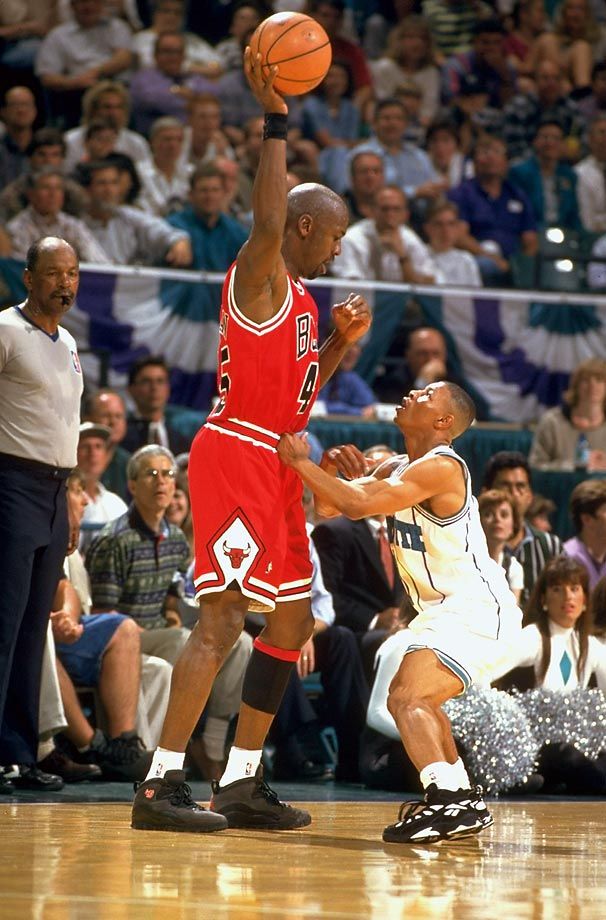
Jim Burson - JimBurson.com
There are some really obvious mistakes that are not limited to coaching kids, such as being unorganized and not focused. Assuming that many of the youth coaches are not professionally trained, there are many dangers in their ignorance. Some of my immediate thoughts are:
• Not organized,
• Coach and players as a group and not as individuals,
• Preparation for practice and play is not focused;
• Knows the difference between too much practice and not enough practice; need to know the emotional, physiological, conditioning and maturity levels of players in order to evaluate this on an ongoing basis,
• Worry too much about winning rather than trying to make players better,
• Pays no attention to anything but X (defense) and O (attack),
• Does not teach children how to win and lose with character, class and perspective,
• Not only develop leaders; instead of having the best player do everything, have different kids stepping up and taking turns leading drills, eg
• Not teaching players how to communicate on and off the court; in the gym and away from the training room,
• Do not work on the development of the internal motivation of the players, which is best done by supporting, encouraging, listening to them; it can't be that the players just do what they say,
• Not stressing the importance of studying alongside playing basketball and how studies and sports interact,
• Forgetting what makes kids better at basketball helps them be better at life; although this may happen naturally or as a by-product of training, learning when it is planned and built into the program,
• Playing with a select few, even unintentionally, often with their own child,
• Thinking their coaching is the only what makes children better; they forget that you can't force someone to be better - you can only influence them to make them want to be better,
• Doesn't know the real reasons why he coaches - are they right?
Joe Haefner – BreakThrough BasketBall
1.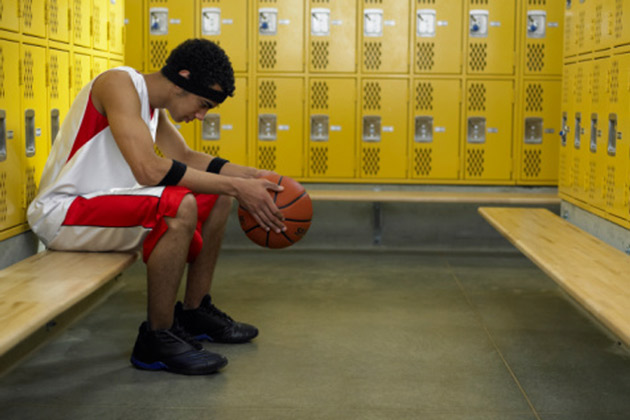 Focus on offensive combinations rather than teaching them how to play.
Focus on offensive combinations rather than teaching them how to play.
2. Players standing in long lines.
3. Have a plan for what to do in training with a short and long term.
4. Run without a ball to improve their physical condition, when they could do the same with balls, while developing basketball skills.
5. Do not separate training in team offense and drills for developing individual technique skills. You can do it at the same time.
6. The monkey sees. The monkey does. Just doing an exercise that they saw on YouTube or on the Internet, without really focusing on the purpose of the exercise. It's not what you do... it's how you do it. a. What are you trying to improve? What is your goal? b. Why are you trying to improve this? Is it suitable for this age? Are there more important things to train? Will it benefit them in the future? in. How do you develop certain skills? Will this exercise fulfill your purpose? 7. Creating a high stress environment with yelling and constant criticism, not realizing that the highest level of learning occurs when stress levels are lower. 9Jordan Delp - Pure Sweet Basketball children how to play. Instead of focusing on winning a 5th grade basketball tournament, we should focus on teaching these kids to be successful later in their career by focusing on ten areas of development.
9Jordan Delp - Pure Sweet Basketball children how to play. Instead of focusing on winning a 5th grade basketball tournament, we should focus on teaching these kids to be successful later in their career by focusing on ten areas of development.
1 - Throwing technique. 2 - Dribbling with both hands / against pressure. 3 - Passing the ball with both hands / against pressing. 4 - Throws with both hands when passing / against pressing. 5 - Basic footwork, triple threat reading. 6 - Creation of SB. 7 - Moving without the ball. 8 - Protective stand. 9 - Defensive positions, reading screens, helping the helper. 10 - Be a real teammate. If our young basketball players have spent their time working in these ten areas from their earliest ages, I believe your game will be at the highest level. This means that training time must be purposeful, it must be planned, and it must be efficient. Young gamers spend too much time playing games and not working on their skills enough. Children naturally love to compete and we can use practice time to encourage their competitiveness - you won't need to play 5 games a weekend (where losing or winning doesn't really matter), you will need to spend more time in practice room by developing your game and your players.
Lamar Hull – Inspiration Basketball
Some of the common mistakes I see are: a team with the ability to fight,
• Do not focus on the basics of individual technique,
• Performing an exercise without explanation and demonstration,
• Do not pay any attention to defense,
• Make no effort to live like a team
Lemar Griffin – Grind Time Hoops
What I mean is, if you don't train the things you want your players to be able to do at game speed in game situations, how can you expect them to pass, shoot, dribble in games? The answer to this question is simple, I believe that the lack of training exercises at game speed and imitation of game situations is a common mistake of youth basketball coaches.
Mark Adams – Mark Adams BasketBall
1. Not spending enough time teaching/explaining the basic principles of fundamental technique.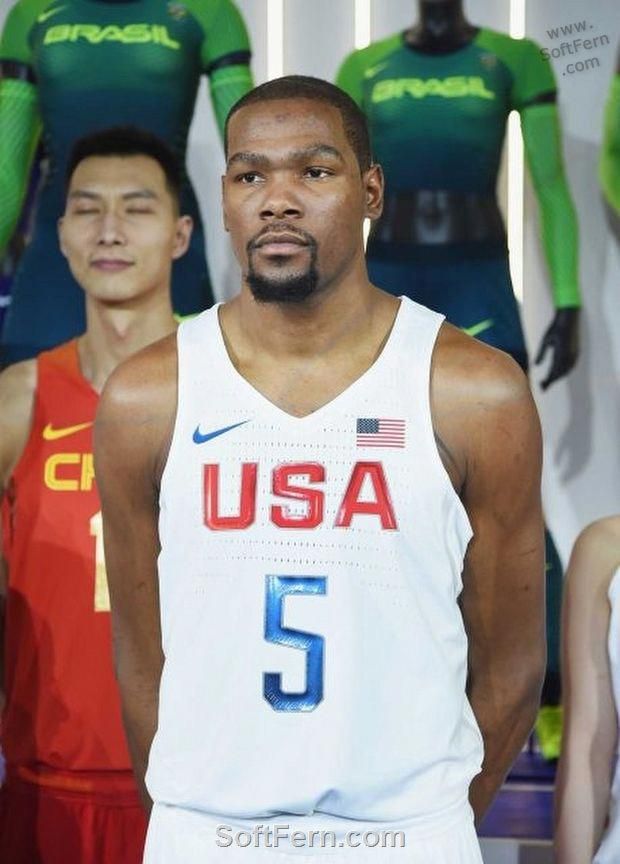 2. Spend too much time learning offensive play patterns instead of teaching kids "how to play." 3. Too much time is spent learning zone defense when kids should be learning the basics of personal defense. 4. In general, there are too many games played in children's basketball and there is too much emphasis on winning. Children should learn how to play this game and have fun.
2. Spend too much time learning offensive play patterns instead of teaching kids "how to play." 3. Too much time is spent learning zone defense when kids should be learning the basics of personal defense. 4. In general, there are too many games played in children's basketball and there is too much emphasis on winning. Children should learn how to play this game and have fun.
Matt Kramer – Beyond the Hardwood
1. Teach the kids to play the personal defense first, before learning the zone. For me, this is the biggest one. I watched a bunch of kids basketball games last winter because my son plays in the 9 and 10 year old league. In almost every game I've watched, teams have played zones. This inhibits the growth of players on both sides of the ball. Defenders don't learn how to defend against anyone, and attackers don't know how to play zone defense. This is bad for everyone. Teach player player defense.
2. Teach kids how to attack without the ball.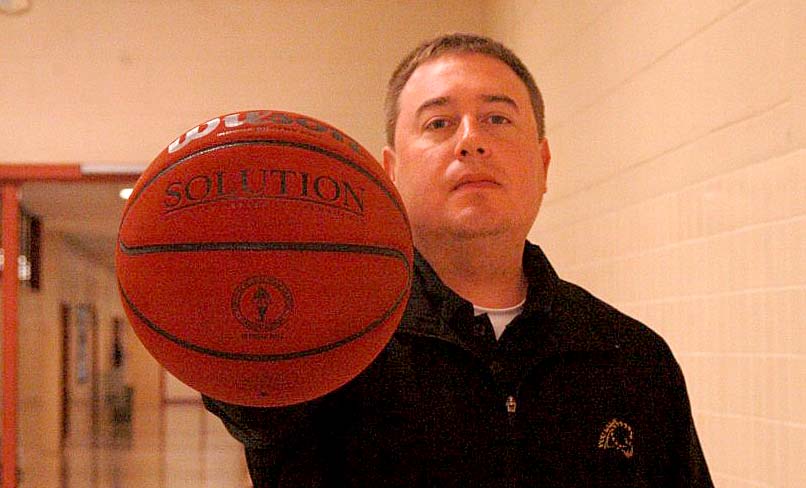 The world has gone crazy with screens and rolls. It's great at a professional and high youth level, but when the whole game is screens and rolls at a children's level, then two play and the remaining 3 children on the site as in a parking lot, as spectators. Dribbling kills experience for 90% of players on the court and pick and roll requires a lot of dribbling. Teach your kids how to rush to the basket and even screen the ball if they already have an idea how to do it.
The world has gone crazy with screens and rolls. It's great at a professional and high youth level, but when the whole game is screens and rolls at a children's level, then two play and the remaining 3 children on the site as in a parking lot, as spectators. Dribbling kills experience for 90% of players on the court and pick and roll requires a lot of dribbling. Teach your kids how to rush to the basket and even screen the ball if they already have an idea how to do it.
3. Don't waste time on tricky offensive throw-ins that are inaccessible to children. Every time you waste time teaching kids throw-in patterns, you are wasting time that could be spent teaching kids to play man-man defense and teaching them to play offense without the ball. If you really want to help your players improve, teach them individual technique skills.
Mihai Raducanu – No Limit Performance
Coaches should focus 100% on skill development. Ages 6-9 - Children need to learn motor skills. Ages 9-12 - Children must learn to train/play the right way. Learn the basic skills of the game. Ages 12-16 - Children should continue to learn how to exercise. More strategic specific model here. Implementation of technical and tactical concepts. Ages 16-18 - Train to win. Emphasis on winning. Other game concepts. Expanded skill development. Age 18+ - Train to win. Everything you need to play the game must be fully installed. Players will receive a higher level of education in everything. Lots of mental preparation.
Ages 9-12 - Children must learn to train/play the right way. Learn the basic skills of the game. Ages 12-16 - Children should continue to learn how to exercise. More strategic specific model here. Implementation of technical and tactical concepts. Ages 16-18 - Train to win. Emphasis on winning. Other game concepts. Expanded skill development. Age 18+ - Train to win. Everything you need to play the game must be fully installed. Players will receive a higher level of education in everything. Lots of mental preparation.
Mike Costello - Pure Sweat Basketball
I think one of the common mistakes in kids training is having a lot of 5-on-5 games. Many children in training do not touch the ball much for their development. I prefer 3-on-3 games in which each child touches the ball.
Wow. Thank you! Many thanks to every specialist who took time out from their busy day to answer this question for all of us. I've definitely learned a lot about what's going on in youth basketball through the experts' answers, and I hope you've heard a lot from this article too. Please share with your colleagues if you think this article was helpful.
Please share with your colleagues if you think this article was helpful.
V. Melnichuk translated 10/16/2016
Basketball coach Rivkhat Babekenov: “It is important to know that a coach is a good psychologist”
in the FORUM Hoops basketball section, and also plays in amateur championships for the Zhigalma team in Almaty.
We talked with him about how the basketball community in Almaty was changing, about his talent for mentoring and love for basketball.
— How did your path as a basketball player begin?
At the age of 15-16 I started playing basketball. We had a football section at school, but after the departure of our coach, the moment came when we realized that we had to do something other than football.
We began to come to one school playground in the Aksai-4 district in Almaty (there was already a large basketball community there), we got to know each other and started playing. I started very late, but got carried away and fell in love with this sport.
I started very late, but got carried away and fell in love with this sport.
— Who inspired you to choose this particular sport?
Actually, I never had any idols. When I finished playing football, I discovered basketball. And, probably, I myself am such a person who always strives to be the best.
I wanted to grow, compete and win. Thank you to my football coach for instilling this healthy competitive spirit in me. I respect many players, but I have never had any idols. And I recommend to young people that they look, equal to the best and take an example from them.
— Why and how did you become a coach?
This is generally a funny story. I studied at the IT University, I was invited there quite late as a player and offered a 100% discount on tuition. I didn’t have a higher education then and the opportunity to get it, so I agreed. My friends were offered a master's degree, and I was offered a bachelor's degree.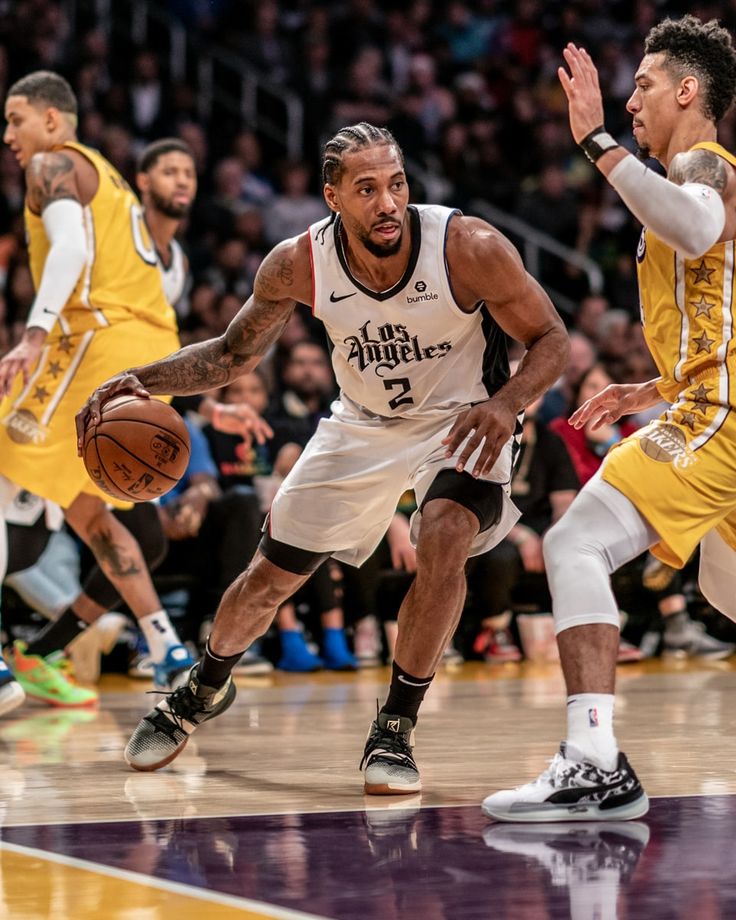 Our coach was Andrei Viktorovich Zuev. I respect him a lot, but he didn’t understand basketball the way the coach needed, so he completely trusted us.
Our coach was Andrei Viktorovich Zuev. I respect him a lot, but he didn’t understand basketball the way the coach needed, so he completely trusted us.
In the process, I was able to become a leader for the team, coordinate the guys and give them advice - I was able to be a mentor. Then I graduated from the university and they told me that I had a predisposition to mentorship. And the coach - the person who inspired me for some things in my life, including coaching - told me:
"Rifa, you're not going anywhere, you're good at being a coach, you have to do it, you have potential."
Andrey Viktorovich Zuev himself is a sports person, and he recommended me to enter the Faculty of Physical Education so that I could get a diploma. I think he really got it right. The youth of Almaty probably knows me more as a coach than as a player.
— That is, it can be said that at that moment, at the university, you discovered the talent of a mentor in yourself?
Actually, I don't believe it at all. The year before, I didn't see myself as a coach at all. Yes, I was ready to train MUIT, I always believed in them, but in order to seriously be a coach and have a talent for this, no, this was not the case. Although many people say that I should try myself in professional sports, be a coach there.
The year before, I didn't see myself as a coach at all. Yes, I was ready to train MUIT, I always believed in them, but in order to seriously be a coach and have a talent for this, no, this was not the case. Although many people say that I should try myself in professional sports, be a coach there.
Yes, I have experience in a professional career. I was the second coach of the Almaty Legion club in 2014. Then I broke my leg and began to recover from the fracture. I have a very good friend Zhomart Asenkanov, he called me and offered me a job as a specialist in Legion. I passed the interview and was appointed to the position of second coach. In the process, it turned out that I had misunderstandings in working with the head coach, after which I became a manager, organized trips, and controlled trips to Russia. At the games, I was an assistant, helped and advised where needed.
However, I can't call myself a talent. I have my own vision and experience, from which you need to learn something for yourself and your development.
— You coach the IT Legion team, which plays in the student basketball league in Kazakhstan. Tell us about this experience.
IT Legion formed in 2015. Then the rector was offered to create a team, invite good players for free training, and he agreed. The team immediately began to win and they began to support us. Since then, many guys have been coming to us.
We are fighting for first place in the student league. I think that our project is quite successful. There are no professional players in the team, but wherever we come to play, we will be perceived everywhere as contenders for the championship.
Speaking of rivalry among the student teams, the last time, two years ago, I saw only four teams that claimed to win. These were the teams of MUIT, KazGU, Atyrau and Turan. I hope there will be more competition.
Of course, I can recruit professionals, it's not difficult, but they don't participate in team building, in chemistry.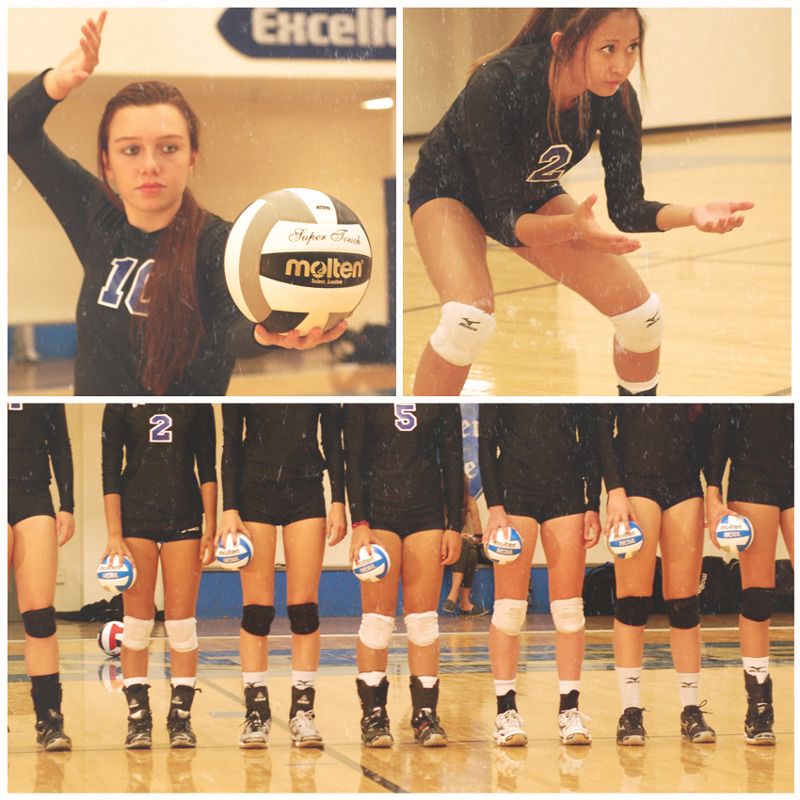
And the guys who train will not be able to compete with them and develop properly. It is right to support amateur students in sports.
— Do you see yourself as a coach of the national team of Kazakhstan?
No. I'm still too young. Ambition is good. Every person should strive for something, but sometimes you need to face the truth and understand whether you are ready for it or not. I do not see myself in this position in the next 15 years.
I have enough experience to coach young people, but being a professional coach requires even more experience than I have. You need to work, for example, as an assistant in order to become the main one at the national level. Do you know the seven hats method? To understand which hat suits you, you must try on all seven, and only then choose the right one.
— What three qualities make you stand out as a coach?
I am demanding, disciplined and responsible. It is important for me to be in a team and feel responsible not only to myself, but also to the guys.
It is important for me to be in a team and feel responsible not only to myself, but also to the guys.
— Do you have your own special technique that always leads to results?
I'm currently coaching the Bears at Forum Hoops and my technique doesn't always work for them. No, in fact, I think that if anyone has a technique, then for a certain time. It cannot be used all the time.
For example, when I showed my vision of the game to the guys from Forum Hoops and told them what to do and how to do it, they began to show good results, and their rivals were not ready for this. Two or three months pass, young people get used to it, and this technique no longer works: you need to come up with something new and constantly improve. It depends not only on the coach, but also on the players. A lot of guys don't watch NBA or EuroLeague games. How do they want to be the best without watching the best? Visual memory is also part of the technique. If you have a set of skills, you can feed them by watching matches with really strong players.
— Do you find an individual approach to everyone?
Yes, this is very important. You need to find your own approach to each person for the general position of the team and the results: someone needs pressure, someone likes a whip, and someone likes a carrot. At MUIT, I talk a lot with my guys before and after training. It is important to know that the coach is a good psychologist. He must understand people, ask leading questions, and, receiving the necessary information, understand what worries him and where he needs to be prompted.
— What is the most difficult part of your job?
Probably patience. You need a lot of patience and you should not forget why you are doing this.
— Tell us more about the basketball community in Almaty.
I will talk about the 3x3 community, as it is the largest in Almaty, if we take into account the whole of Kazakhstan. In fact, now it has expanded so much that it is even hard to believe.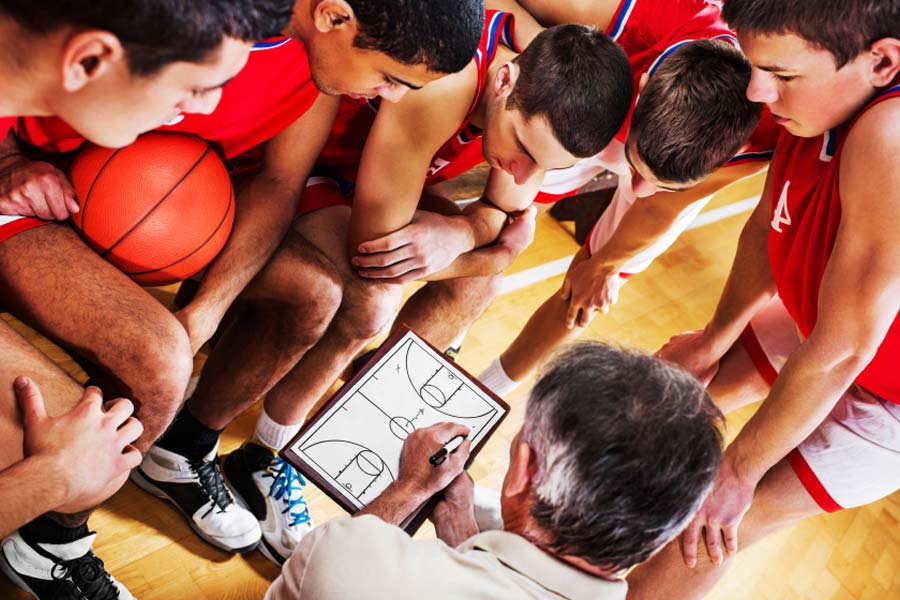 If earlier we played in a narrower circle, now there are a lot of sections, opportunities, platforms, both paid and free.
If earlier we played in a narrower circle, now there are a lot of sections, opportunities, platforms, both paid and free.
People love basketball and that's cool.
It is a pity, of course, that we do not have a professional team ready to play at a high level in Europe or in the National League. I myself like to watch basketball and I think many people would be interested too.
— The popularity of this enchanting sport in Kazakhstan is gaining momentum. And how developed is the culture of basketball in Almaty. There are playgrounds and sections around, a huge number of interested children, and most importantly, good results. How do you assess national basketball and its prospects for the future?
I want to say that 3x3 basketball is gaining momentum in Kazakhstan: it is available, you only need three people from one team, conditionally, and three people from the other. This lightness makes it popular and widespread in Almaty and Kazakhstan.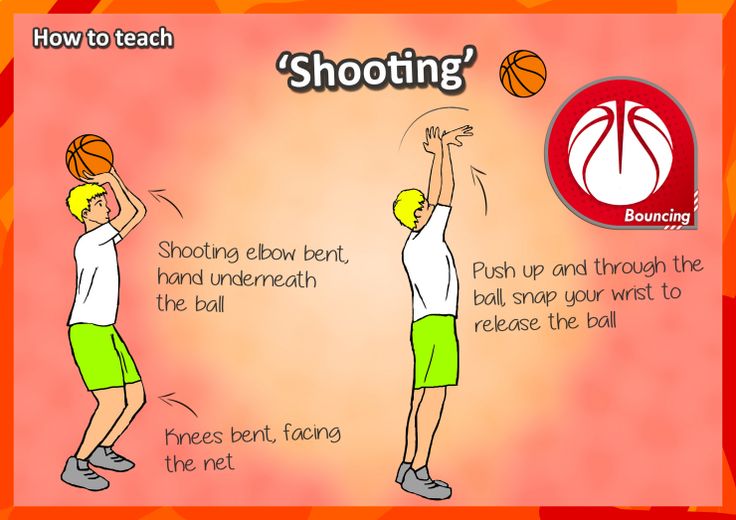
As for 5x5 basketball, things are not so good at the national level. Only five teams participate there, and no one has been able to beat the capital for several years now. To be honest, professional sports are not yet at such a good level - this is my subjective opinion. If we talk about Almaty, then 3x3 basketball is more popular here than 5x5.
— So you think that 3v3 basketball has more prospects for the future than 5v5?
In 3x3, the Mongolian women's team qualified for the Tokyo 2022 Olympic Games. Imagine Mongolia! All because they held an unrealistic number of tournaments within the country and gained a rating.
Our basketball is still at a level where the chances of Kazakhstanis to get to the world championship are small. There are very strong teams in Asia, they need to be defeated. Why can't you go the same way as Mongolia, changing the vector a little?
We can try to win a ticket to the Olympic Games, because the Olympic Games are the highest level for an athlete.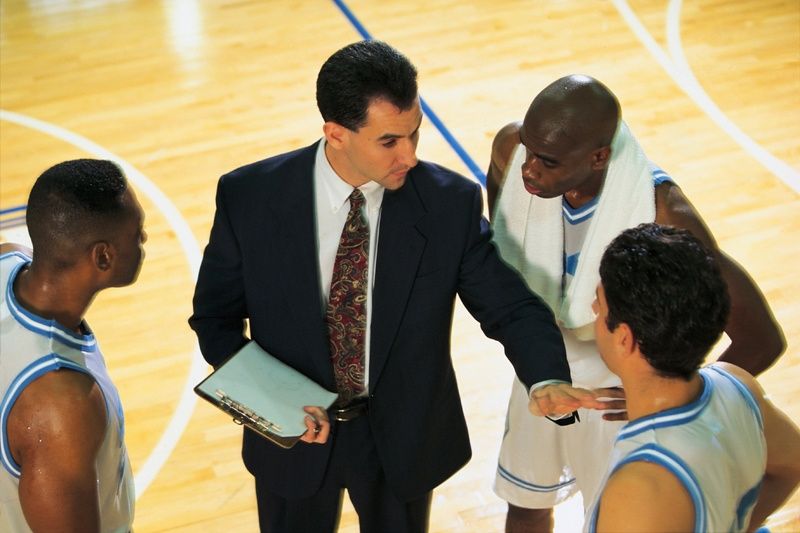 In a 3x3 rating system, where people score points, and due to this, basketball is popularized in the country. This is actually a very long topic of discussion.
In a 3x3 rating system, where people score points, and due to this, basketball is popularized in the country. This is actually a very long topic of discussion.
— Recently, from May 26 to 30, in Austria, in the city of Graz, the first ever qualifying tournament for the 2021 Olympics was held, in which you took part. I know that you had training camps and only four could enter the extended squad of six people. What were your expectations from the tournament?
It's not my first time playing in major tournaments, but this is a very cool opportunity. It should be noted, of course, that Kazakhstan got there only because New Zealand was unable to travel due to restrictive measures. Therefore, we had little time to prepare, unfortunately.
In theory, we had a chance to get to the Olympic Games. Lithuanians, Belgians, Americans and Koreans played in our group. Due to lack of time for training, we probably did not manage to compete for a ticket to the Olympic Games to the end.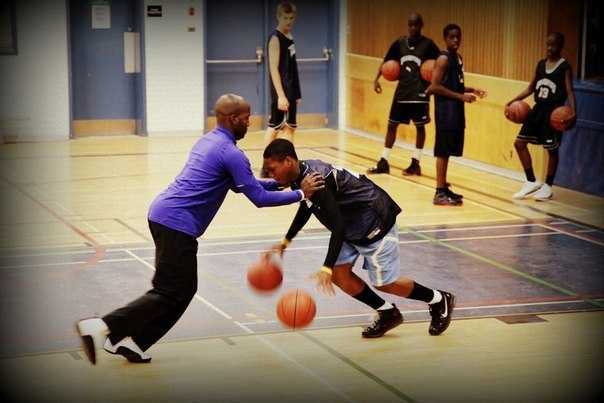 On top of that, the European teams can play each other due to the small distance between them, and we are further away and we don't have the same opportunity to play against strong teams on a regular basis.
On top of that, the European teams can play each other due to the small distance between them, and we are further away and we don't have the same opportunity to play against strong teams on a regular basis.
Let's hope that our country will still have a chance to get to the Olympics. For the first time, 3x3 has turned from street basketball into an official sport at the Olympics - it's great!
- I think this is an incredible event. You, as a coach, by participating in such high-level championships, set a wonderful example for the younger generation, including your students. Did you feel responsible?
I was very upset when I didn't make it to the final line-up at the tournament in Austria. But if someone among the young guys looks at me and thinks that this is possible, I am very happy about it.
The youth must understand that everything is in our hands. If you really want this, then you must devote time, and the result will not be long in coming. And you don't have to go to a fortune teller to guess the car, ask yourself what did you do to get this car?
And you don't have to go to a fortune teller to guess the car, ask yourself what did you do to get this car?
It's the same in basketball: people may say that you are promising, but this does not mean that you do not need to work on yourself. This means you have to try harder. I am no longer young and I know that this is true.
— Tell us about the most memorable event in your career as a coach and basketball player.
I think that the coaching career is still ahead of me. And so - a silver medal at the NBSL (Student League). It was a very tough match against Atyrau, they were stronger, but it was a good experience.
As a player, this is probably participation in the Asia Quest Final in the capital. Asia is divided into regions and we are in the central one. And once a year there are quests in which we have to win a tournament in our region. After that, you can get a ticket to the final, where all Asian countries participate.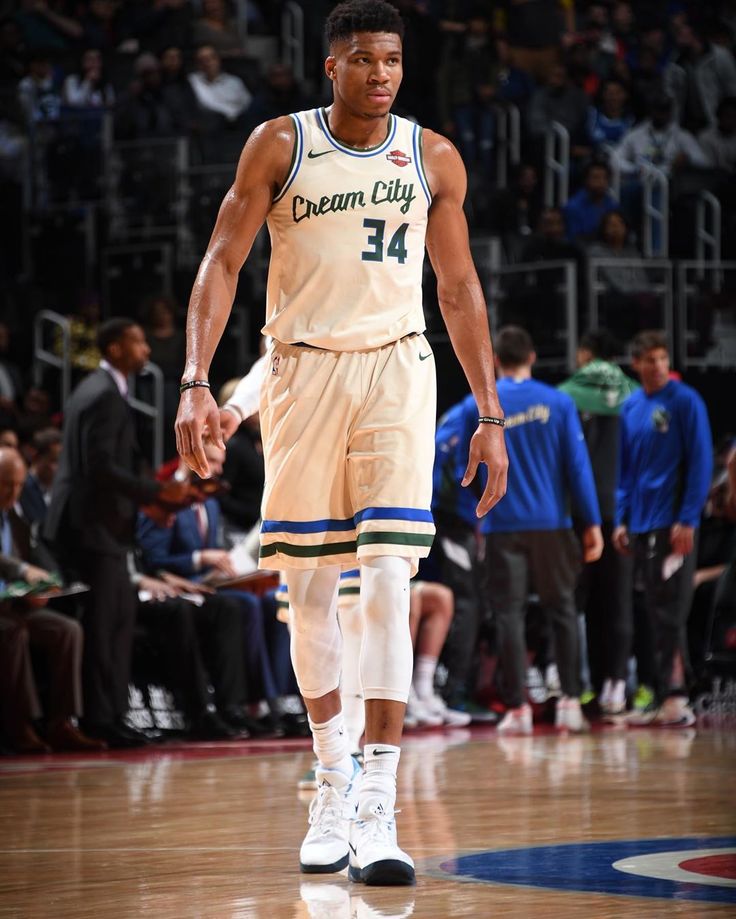 And there, by the way, you represent not a country, but a city, that is, we represented Almaty Zhigalma. Then this tournament was supposed to be held in Malaysia, but it was moved to Astana. Played the tournament, took fourth place. 3x3 has its own Champions League, just like in football. This is a very complex system, but there are many opportunities to get on the world tour, and we have them.
And there, by the way, you represent not a country, but a city, that is, we represented Almaty Zhigalma. Then this tournament was supposed to be held in Malaysia, but it was moved to Astana. Played the tournament, took fourth place. 3x3 has its own Champions League, just like in football. This is a very complex system, but there are many opportunities to get on the world tour, and we have them.
— What do you think are the best basketball clubs in Almaty?
Vasily Savchenko, a good specialist in children, who works in the “Give the ball!” section. Vsevolod Fadeikin is also an excellent coach. I saw how they work, so I would give them my child. Basketball school "Juva" is also very cool. They hold tournaments for children, lure them in - it's great. My Forum Hoops section is for the older ones. There are children aged 12-16 who are physically stronger and ready for new complex basketball tactics.
What do you think is the ideal age to start playing basketball?
As a coach, I try not to work with children, as this is a big responsibility.